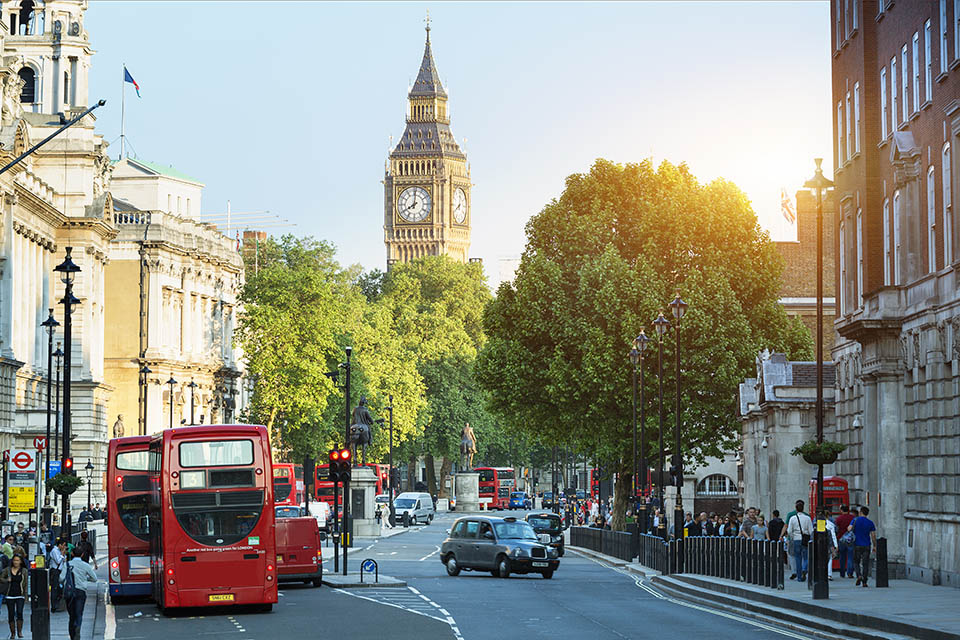Environment Bill summer policy statement: July 2019
Updated 23 July 2019

Faced with the unprecedented decline of our natural environment, science clearly shows that tackling biodiversity loss, climate change, air quality and plastics pollution is a priority. With public concern about the environment and climate also at an all-time high, urgent action is required to drive necessary change. We need to fundamentally rethink how we approach environmental sustainability and enhancement, and the way we plan, invest and live.
Across government, we are committed to be the first generation to leave our environment in a better state than we found it.
The Environment Bill is the centrepiece of our answer to urgent environmental need and a landmark commitment to protecting and improving the environment for future generations. The measures in the Bill will ensure that environmental ambition and accountability remain at the heart of government after Brexit. We will improve air quality so that our children live longer, restore and recover environmental biodiversity, strive towards a circular economy, and ensure we can manage our precious water resources in a changing climate.
The Environment Bill will establish a comprehensive legal framework for environmental improvement. It will chart a clear course for a greener future, creating a new, world-leading Office for Environmental Protection that will hold this government and future governments to account.
As we leave the EU, we have the opportunity to lead an environmental transformation that will help our country – and the planet – to thrive. The Environment Bill will set the path for all parts of society to help make the right decisions to tackle the biggest environmental priorities of our time.
1. Since publishing the draft Bill
We published the draft Environment (Principles and Governance) Bill in December 2018, setting out draft proposals for green governance after we leave the EU.
In April, we received the pre-legislative scrutiny reports from two Parliamentary Select Committees outlining their recommendations. We are considering how to respond to these recommendations by strengthening our proposals for green governance, reinforcing the independence and accountability of the Office for Environmental Protection.
Beyond the Bill, this government has already taken action to protect our environment; we have laid legislation to reach net-zero carbon emissions by 2050, published the first progress report on the 25 Year Environment Plan and put in a joint bid with Italy under a UK Presidency to host COP26 in 2020. We have also published six government responses following public consultations to seek views on a range of environmental issues that will be addressed in the Environment Bill.
There has been extensive and continued collaboration with the Scottish and Welsh Governments and the Northern Ireland Civil Service. This has enabled us to bring forward a number of measures that we expect to see adopted outside of England, subject to the final decision of the devolved administrations. These joined up measures will help us deal with the environmental challenges we are facing together.
2. Green governance
The Environment Bill will establish the structure for long-term environmental governance and accountability. Its measures will be essential to achieving the government’s manifesto commitment to deliver a Green Brexit.
Together, these measures will form a coherent system to make the government’s approach to environmental improvement ambitious and transparent. The Bill will enshrine in law Environmental Principles which will embed environmental values at the heart of government policy making.
The Environment Bill will establish a world-leading environmental watchdog in the Office of Environmental Protection, which will scrutinise and advise government on the environment as well as being able to bring legal proceedings against government and public authorities, if necessary.
The environmental governance measures set out in the Bill will ensure future governments set out clear plans and report on their progress in a statutory cycle of Environment Improvement Plans – something that is essential if we are to make our ambition a reality.

3. Improving the air we breathe
Poor air quality is among the greatest environmental risks to our health. While we have made considerable progress in recent years in cleaning up the air we breathe, we need to go much further if we are to achieve our goal of clean air for all.
On the basis of scientific modelling, which has not considered full economic viability and practical deliverability, we believe that, whilst challenging, it would be technically feasible to meet the World Health Organization guideline level for PM2.5 – the most harmful air pollutant to public health - across the UK.
We are committed to continue working with experts on further analysis to understand options for timescales for achieving this guideline level. This will be underpinned by legislation on key measures in the Clean Air Strategy, giving legal force to our plans. We will enable greater local action on air pollution by, for example, ensuring responsibility for tackling air pollution is shared (across local government structures and with relevant public bodies) and by better enabling local government to tackle emissions from domestic burning.
We will also bring forward powers for government to mandate recalls of vehicles and machinery, when they do not meet relevant legal emission standards. These key changes will enable us to take the bold action we need to protect our health, and that of our future generations.

4. Restoring and enhancing nature and green spaces
Following public consultations on biodiversity net gain, conservation covenants and England’s trees and woodlands, the Environment Bill will enshrine in law our commitment to deliver environmental policy that will make a real difference in local communities. We will ensure that targeted action not only preserves our natural environment for future generations, but helps reverse damage suffered in the past.
We are committed to sustainable development across our country and delivering much-needed housing does not have to come at the expense of vital biodiversity. Through the Bill, we will introduce a mandatory approach to biodiversity net gain. This will require developers to ensure habitats for wildlife are enhanced, with a 10% increase in habitat value for wildlife compared with the pre-development baseline. Exemptions for certain types of development will be made in a targeted way, and we will continue to work to establish potential approaches to achieving biodiversity net gains for nationally significant infrastructure projects and marine development, which remain out of scope of biodiversity net gain in the Bill.
To help guide key policies like net gain, planning and the future Environmental Land Management system, we will introduce a new statutory requirement for Local Nature Recovery Strategies. These strategies will help to map out important habitats and opportunities for the local environment to be improved, linking communities’ knowledge and priorities with national environmental objectives.
We will also give communities a greater say in the protection of local trees. To enhance the safeguarding of urban trees, government intends to introduce a duty on local authorities to consult with local communities to ensure that consultation takes place when a street tree is to be felled.
Leaving our environment in a better state requires long-term investment and stability. The Bill will not only legislate to improve protection for our natural habitats in the short run, but will also secure environmental benefits for the long term. We intend to legislate on conservation covenants, a voluntary agreement between a landowner and others (for example, a conservation charity) to help deliver positive local conservation.
5. A new direction for resources and waste management
Material resources are at the heart of our economy and they allow us to meet our basic human needs and generate economic growth. However, our current use of resources is unsustainable. The traditional ‘linear’ economic model of ‘take, make, use, throw’ has led to needless waste piling up, and has caused significant environmental damage. That’s why, following public consultations on a deposit return scheme, recycling and extended producer responsibility, the Bill will introduce a series of measures that will fundamentally change the way government, businesses and individuals produce and consume products.
Our aim is to lead internationally in maximising resource efficiency, minimising waste, and moving towards a more circular economy. Our new legal powers will allow us to set resource-efficiency standards for products, driving a shift in the market towards products that are lasting, can be repaired and can be recycled. It will also allow clear labelling to enable citizens to make fully informed purchasing decisions.
We will ensure those who place packaging on the market take more responsibility for the costs any waste of that packaging imposes; according to the ‘polluter pays’ principle. The UK government will take powers to introduce Extended Producer Responsibility schemes. For packaging, we will ensure producers pay the full net cost of dealing with their packaging waste to incentivise recyclability in its design. At the moment, producers currently only pay about 10% of these costs. We will make them responsible for 100%.
We will also legislate to modernise the government’s powers to set producer responsibility obligations, extending them to prevention and redistribution of waste, so that we can tackle the moral scandal that is food waste.
Where waste cannot be avoided, we will make it simpler for everyone to recycle. We intend to implement a simplified approach to recycling across local authorities, making it simpler for the public to recycle. A consistent set of materials will need to be collected from all households and businesses in England, with clearer labelling on packaging so we all know what we can recycle.
Making it easier for people to make the right choice when they come to dispose of products is a key component of our approach, and our proposals for a deposit return scheme received high levels of public support, with over 200,000 campaign responses. The Environment Bill will introduce powers that will enable us to implement deposit return schemes. These policies will help us to tackle the urgent issue of plastic pollution, but we must do more. That’s why, building on the success of the carrier bag charge, we are seeking a power to be able to introduce charges for specified single use plastic items.
Items not properly disposed of may turn into litter, which imposes costs on local communities and harms the environment. Following our commitments in the 2017 Litter Strategy, we promoted and delivered on proportionate and effective enforcement. We committed in the Litter Strategy to review the mechanism by which councils and other land-managers can be held to account for maintaining their land to the standards set out in the Code of Practice. We are considering the current section 91 Environment Protection Act process and other options, taking into account the impacts on local authority prioritisation and costs, the court system and the exchequer.
And we must also tackle waste crime, which costs the English economy around £600 million per year.[footnote 1] This government supports comprehensive and frequent rubbish and recycling collections and we will introduce a series of measures to improve the management of waste, enabling better use of resources and to reduce the risk of economic, environmental and social harm.

6. Delivering sustainable water resources
Managing water sustainably is essential if our environment is to thrive; to benefit people and wildlife in the face of a changing climate. We have seen significant improvements in water management in recent years. However, we face challenges ahead to improve at least three quarters of our waters to be as close to their natural state as soon as is practicable, to develop more resilience and to address the increasing risks of flood and drought from challenges such as a changing climate.
The government’s priorities for the water sector, in line with the 25 Year Environment Plan, are clear: they should be securing long-term, resilient water and wastewater services, protecting customers from potentially unaffordable bills and also making sure that we have a cleaner, greener country for the next generation. We received strong support in consultation across our proposals to improve long-term planning of water resources and drainage. Our intention is to take forward the majority of the measures we consulted on.
Through the Environment Bill, we will support regulators in ensuring that customers and the environment are protected. We will legislate to strengthen Ofwat’s powers to update water companies’ licences, in order to make sure that they can do their job. We will bring the way in which water companies appeal Ofwat decisions in line with that for other utility regulators. This will strengthen Ofwat’s ability to improve the way that water companies operate and protect this vital resource.
The Bill sets out powers to direct water companies to work together on how they will meet current and future demand for water; making planning more robust, and ensure we are better able to maintain supplies, even in drought conditions and/or in areas of water stress, for example by working jointly to transfer between catchments when needed. We will take an additional power to enable future updates to a list of harmful chemicals which must be tackled to protect the aquatic environment.
The Environment Bill will be introduced in the second Parliamentary Session.
